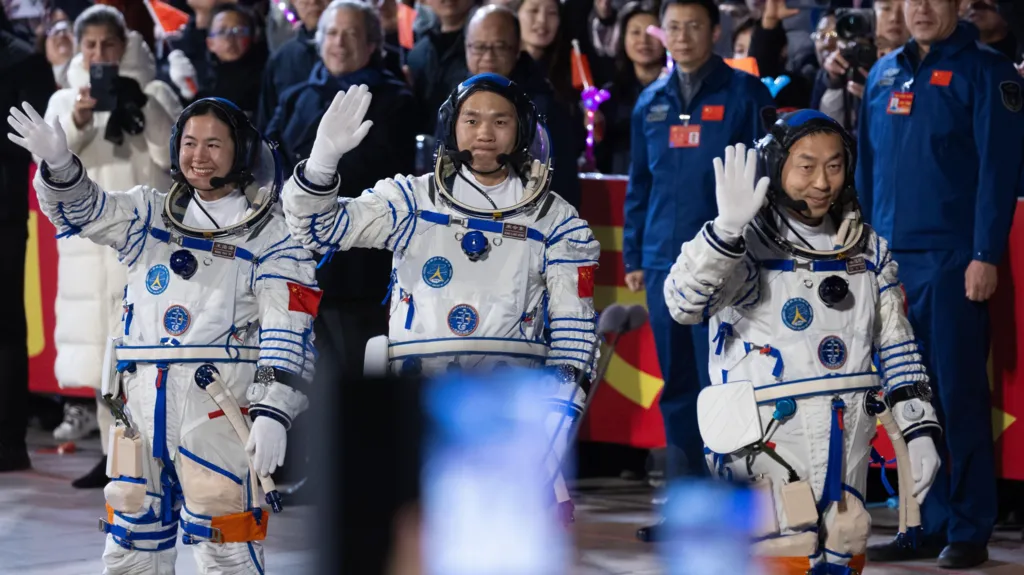
China’s Space Success with Young Astronauts Marks New Era in Exploration
China’s space success reached new heights as its youngest astronauts, including the first female space engineer, embarked on a mission aboard Shenzhou 19 to the Tiangong space station. With national pride in full display, China declared the mission a “complete success,” marking one of 100 planned space launches in 2023. The Shenzhou 19 mission supports China’s plan to conduct experiments, spacewalks, and gather insights for its ambitious 2030 goal of landing a crew on the Moon.
China’s achievement also intensifies its rivalry with the United States, a space race that is seeing advancements from both sides as each nation aims for lunar territory. However, China’s officials emphasize their commitment to the peaceful use of space, dismissing U.S. concerns as “unnecessary.”
Historic Launch of China’s Youngest Astronaut Crew
The Shenzhou 19 launch marks a turning point in China’s space program, as the crew includes taikonauts from a new generation. Among them is Wang Haoze, China’s first female space engineer, who embodies a new era for China’s space ambitions. Alongside her is veteran pilot Cai Xuzhe, who expressed pride in joining the younger taikonauts in their mission to make history for their nation. Their six-month assignment on the Tiangong station includes critical research that not only supports China’s lunar goals but also aims to benefit scientific knowledge on Earth.
The crew will replace the Shenzhou 18 team and carry out experiments focused on microgravity, bone loss, and muscle atrophy—research that could yield valuable insights applicable to Earth’s health challenges. Zhang Wei from the Chinese Academy of Sciences explained that such experiments might pave the way for medical advancements addressing osteoporosis and muscle degeneration.
Space Race with the United States: Peaceful Use or Competition?
China’s space success, while celebrated domestically, is closely monitored by the United States. NASA’s Bill Nelson recently remarked that China and the U.S. are “in effect, in a race” to establish a lunar presence, with concerns about potential territorial claims. Meanwhile, General Stephen Whiting of U.S. Space Command cautioned that China’s advancements could be dual-purpose, noting its growing fleet of reconnaissance satellites.
However, Chinese space officials have emphasized their commitment to international cooperation and peace. Li Yingliang, a director at the China Manned Space Agency, described the program as a “collective mission for humanity,” stressing China’s openness to collaboration in manned space technology. According to Li, China’s approach to space is rooted in “peaceful use,” despite the intense progress that could rival Western advancements.
Ambitions Beyond Earth: China’s Plans for the Moon and Beyond
With successful missions like Shenzhou 19, China’s space ambitions are only beginning. Future plans include building a lunar research station, returning Venus samples, and launching a constellation of 14,000 satellites to provide global broadband coverage—a network that could one day compete with Elon Musk’s Starlink. Additionally, China aims to complete over 30 space missions by mid-century, a roadmap that reflects the nation’s commitment to space exploration.
Beijing’s advancements in space have also included significant milestones on Mars and the Moon. China is the second nation to successfully land a rover on Mars, and it recently retrieved rock samples from the Moon’s far side, a feat few nations have achieved. These successes symbolize China’s growing role in space and its intent to explore, as President Xi Jinping declared, “the vast cosmos” as part of the “eternal dream” to make China a space power.
For more on China’s space advancements, explore BBC.





